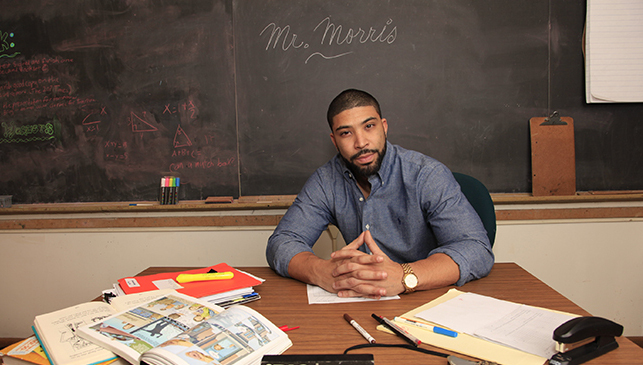Teacher Talk
I have been conducting heavily “teacher-instructed” lessons these last few days. I have spent a large majority of many of those periods talking, teaching, instructing, facilitating, answering questions, and barking orders. I filmed one of my lessons and I was taken aback by my speech style in the classroom setting. Some say that it takes some time to find your “teacher voice”. I am somewhat on the fence about this whole doing teacher talk thing. Being a black male, the idea of how a “normal teacher” ought to sounds rubs me the wrong way. Your teaching voice should be a direct representation of who you are. Every teacher is articulate, educated, and comes from a specific geographic location. I was born and raised in the east region of Toronto called Scarborough. I do have a slight Scarborough accent, I may string my words and sentences together with a little bit of an urban emphasis; the kind of thing that simply becomes automatic and natural to any person growing up for a long period of time in one specific environment.
When I started teaching, I tried to talk differently. I tried to talk like how a teacher ought to talk, informed by my prior experiences about the school system. But, I have found that the way I tried to speak only served as a veil on my true identity. Incidentally, the more “proper” I spoke to my students, the more respect and authority I automatically inherited. But I have realized that this sort of attitude may be sending wrong messages to many of my students.
I realized that I may be a part of the source of some internalizing conflicts that are fostering in young Black males and many minorities that look just like me and look up to me. So it has been my goal to begin to let my guard down. This is the type of thing that happens once one becomes comfortable in an environment. I strive to not sound like a teacher; by this I mean I want to be authentic. I want to sound like how I sound because if I try to sound like anything else I think that will take away from my delivery, my intent, my convictions, and ultimately layer me with just one more coat that solely serves to distance me from my students. I am not saying that I am not stern when the time dictates or “professional” in my dialogue with students, but I am saying that the way I talk to my 12 year old cousin at family get-togethers is the way I hope and should talk to my 12 and 13 year old students in school. Because, for some bodies this transition is completely fluid. But what about the bodies who feel like school and home are two separate realms?
At times, I have tried to “correct” my communication and speak more in “teacher-speak” language. But at the end of the day, what does that subliminally teach the impressionable minds that are placed in my care? Am I instilling the idea that you have to fit a certain mold in order to fulfill a professional role in society? That there is a “right way” to talk and if you do not sound like that you are somehow lacking something that will impede your success in the world? My students learn just as much from me as they learn from Ms. Sally May down the hall. Guaranteed. Regardless of how the words flow from my mouth.
Communicating, at all times is about projecting some sort of relationship dynamics, whether you are speaking to your partner, your colleague, your son, your grandmother, or the person on the other side of the counter at the corner store. How you communicate is your self-constructed projection of how you want to be perceived.
Teacher-talk is just that. Teacher talk. Ultimately, the key in how you portray yourself, especially as a new individual in education, is that you remain authentic to yourself while at the same time remaining professional to whatever sense of the word “professionalism” means to you. You will grow into your voice, it does not happen the first day. It is necessary for you to figure out your voice for yourself, talk in a way that you feel comfortable and communicate in a fashion that allows you to manage your class accordingly. Talk how you talk because sincerity, worst comes to worst, shows the students that you are authentic to yourself and you refuse to re-mold regardless of what pressures you may face. Which, in the end, is another one of the fundamental lessons hidden within curriculum that students are gleaning from their educational experience anyways.
[share title=”Share this Post” facebook=”true” twitter=”true” google_plus=”true”]

